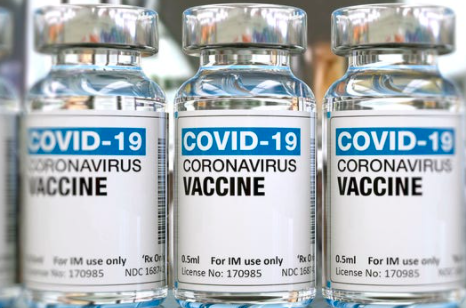Dear Mayor Breed, Board President Walton and Supervisors:
First, credit where credit is due. Mayor Breed, you and the Department of Public Health have made some smart, prudent decisions about lockdowns, and about closing and reopening businesses, functions, and activities. You’ve implemented a strong mask policy. These actions have saved lives and reduced serious illness. San Francisco COVID death rate is low for a city of its size. Thank you.

I’m writing, unfortunately, about something not so good. Unconscionable, in fact.
San Francisco’s COVID vaccination policy prioritizes healthy, able-bodied people 65 and older over high-risk individuals below age 65, including individuals below 65 with major disabilities and health conditions. This policy is based on guidance from the State of California and the CDC.
This policy means that people younger than 65 with muscular dystrophy, spinal muscular atrophy, Down syndrome, primary progressive multiple sclerosis, other autoimmune diseases, Huntington disease, Parkinson’s disease, cystic fibrosis, sickle cell disease, Gaucher disease, and others at high risk of contracting COVID and at high risk of severe illness or death if they do contract it, will have to wait longer — and depending upon vaccine supply, often far longer — to be vaccinated than healthy, able-bodied people 65 and older who have no significant medical conditions.
The policy also does not take caregivers into account, which is wrong both for the caregivers themselves and for individuals who rely on them.
The evidence cited by the CDC Advisory Committee on Immunization Practices on which the CDC COVID vaccination guidelines are based doesn’t include studies or information on these and similar medical conditions.
I’m 63, have facioscapulohumeral muscular dystrophy, cannot walk at all, and use a power wheelchair full time. I rely on my wife and caregivers for virtually all activities of daily living. Because of my FSHD, I have respiratory insufficiency. I’ve used a BiPAP breathing machine all night, every night for more than 20 years. I’m at high risk of serious illness or death if I were to get the virus. My risk is certainly greater than that of a healthy, able-bodied 65-year-old, or even a healthy, able-bodied 75-year-old.
I have three superb caregivers. One of them has taken a job at a skilled nursing facility; tomorrow is his last day with me. He’d like to continue working for me when his schedule permits, and I’d like that, but it would be too risky for me and my wife unless we are vaccinated. Another caregiver availability is limited and may be changing.
Because of COVID, there would be a significant risk in interviewing and hiring new caregivers. If both my wife and I were vaccinated, my caregiver who will be working at the nursing facility would be able to continue working with me when his schedule permits, and I would be able to interview and hire one or more additional caregivers. Until my wife and I are vaccinated, the burden on her and my caregivers will increase significantly. If she, one of my caregivers or I got COVID, the situation would be dire indeed.
Yet when my wife and I signed up on San Francisco’s vaccination website, we were both assigned to Phase 1c.
Until very recently lawyers (the vast majority of whom are working from home) were assigned to Phase 1b, which meant that a 25-year-old healthy, able-bodied lawyer had a higher priority than a 25-year-old with a neuromuscular or other disease whose condition was so severe that he or she was on ventilation 24/7. I have nothing against lawyers – I’m a retired lawyer myself — but that policy was clearly wrong and unfair. There were other categories of employment with a low risk of contracting COVID that were recently removed from Phase 1b. How many precious doses of the vaccine were used to vaccinate people at low risk before these categories were removed?
San Francisco must immediately change its policy to very highly prioritize:
- People of any age with specified chronic medical conditions, including but not limited to ALS, Duchenne muscular dystrophy, Huntington disease, sickle cell disease, cystic fibrosis, and Down syndrome. People of any age with other specified chronic medical conditions should be placed in this category if they can demonstrate by compelling medical evidence that they are at great risk of severe health consequences, including death, if they contract the virus.
- Disabled people of any age who rely on caregivers coming to their home for assistance with activities of daily living.
- Caregivers of any age, regardless of whether they are from government agencies or programs, private agencies, hired directly by disabled clients, or are family members of the individual for whom they are caring.
Not only is prioritization by phase essential, but there must be actual vaccines allocated to people in these categories. The more that the phases that are opened up based solely on lower ages, the more difficult it will be for these people to find vaccines. A remedy without adequate resources isn’t much of a remedy.
The vaccination system is a Darwinian free-for-all, with each individual for themself and each medical institution for its self.
It is difficult to express in polite language, and impossible to overstate, how unjust the current policy is and how urgent it is that San Francisco change its policy.
Howard Chabner is a disability-rights activist and retired lawyer.






